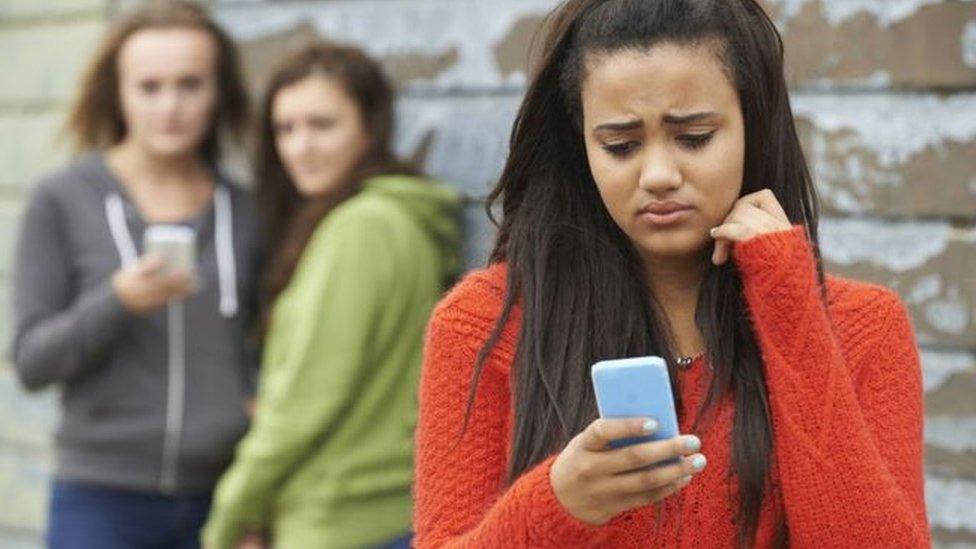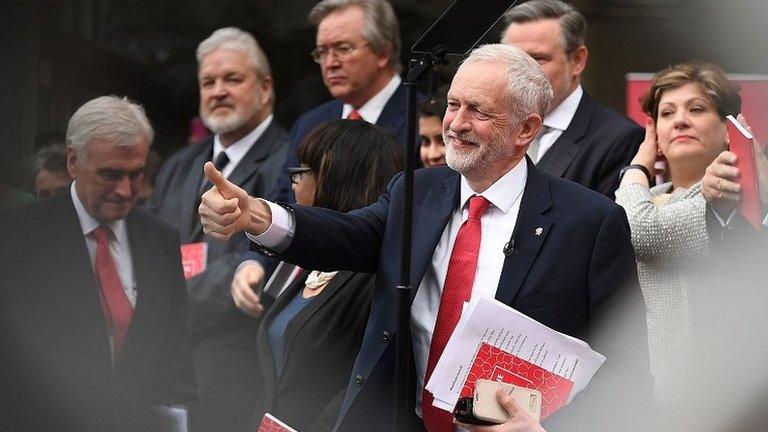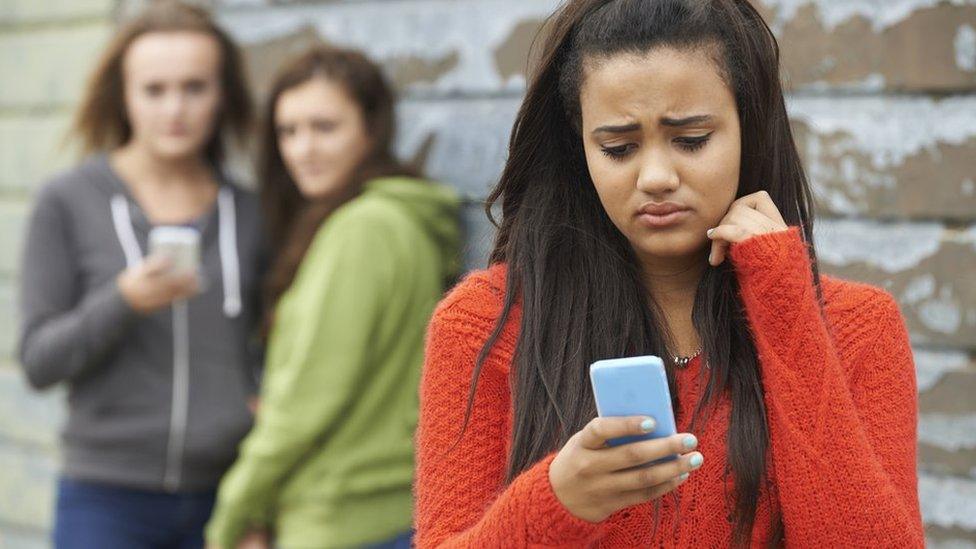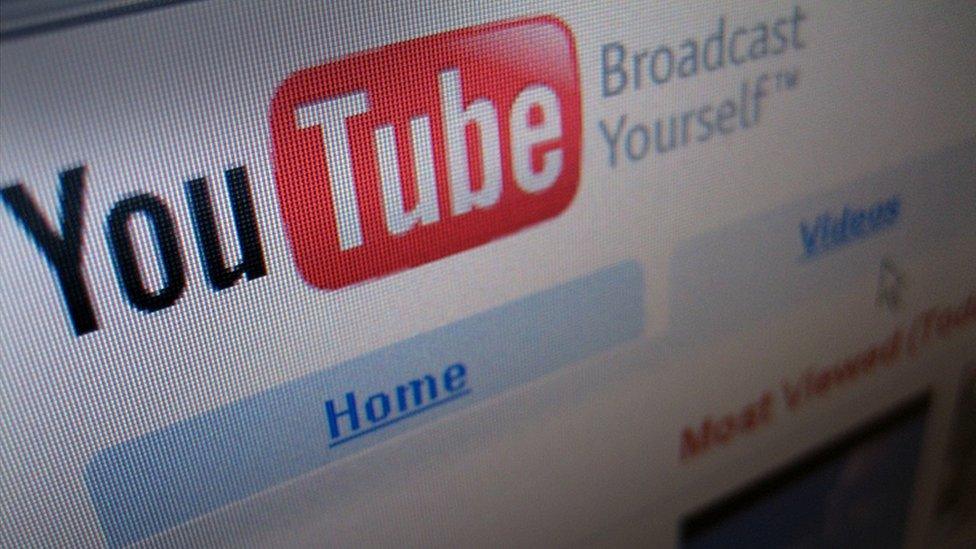General election 2017: Tory plan to let young erase online past
- Published

The Conservatives say they want to give people the power to demand social media companies delete any embarrassing content they posted as children.
The largest firms would be required, if requested, to erase material created by someone before they turned 18.
Ministers hope for co-operation from the likes of Facebook and Twitter but may impose fines if they do not comply.
Labour said despite the "tough talk" ministers had proved unwilling to "stand up" to the industry in the past.
But Home Secretary Amber Rudd told BBC 5 live the party had had "early conversations" with social media companies which indicated they were willing to work with the government on introducing "new protections against internet harms" if the Conservatives win the election.
At present, users can delete their profile on social media accounts if they want to get rid of embarrassing content, but this risks losing all their online connections with people.
Ms Rudd said further safeguards were needed to ensure that "inappropriate" content from yesteryear did not become a hindrance for people when they starting applying and being interviewed for jobs.
In other election news:
Labour's deputy leader Tom Watson has urged people to vote for his party to avoid a "Margaret Thatcher-style landslide"
Lib Dem leader Tim Farron has pledged to ensure 300,000 homes are built each year and give councils the power to hike tax on empty properties
Labour has repeated its pledge to enshrine in law the "triple lock" commitment to raise pensions in line with wages, inflation or by 2.5% - whichever is highest - every year
The right to remove, which would be introduced via legislation, would apply to users of "major" social media platforms and cover all of their own records before adulthood.
Tory sources said the plan was not "overly prescriptive" and indicated that the question of content being tagged and shared by other people would have to be addressed.
The Conservatives also want to make it easier to conduct business online, by introducing the right to insist on a so-called digital signature as a replacement for signing a contract by hand.
The Conservatives want the social media industry to find technological changes that will protect minors from images of pornography, violence and other age-inappropriate content on social media, app stores and websites.
'Too afraid'
Companies would also be required not to direct users "unintentionally" to hate speech and other sources of harm.
The Tories said the new digital entitlements and protections "will be backed up with a statutory sanctions regime" which would give regulators the ability to fine or prosecute those companies who failed in their legal duties, and to order the removal of content where it clearly breached UK law.
But Labour's digital economy spokesman Louise Haigh said: "We pressed the government to introduce tough new codes to tackle extremist and illegal content proliferating across the web, but they categorically refused to act in the Digital Economy Act.
"The Home Office were crystal clear they did not want to legislate and that they believed the voluntary framework was sufficient.

Analysis: By BBC Political Correspondent Chris Mason
The Conservatives want to be seen to be alive to the realities of the digital age for young people.
Photos vividly illustrating teenage indiscretion, or controversial commentary posted online which may prove rather tricky to defend years later in a job interview, can be very difficult to get rid of, without the user deleting their entire profile.
Attempting to regulate global social media companies, based outside the UK, isn't easy.
But the Conservatives are promising a new law under which these internet giants would be fined if they ignored the wishes of a user who had turned 18 and wanted material removed from when they were younger.

"Now only three weeks on from those discussions, they're cynically trotting out tough talk that we know will be ultimately meaningless.
"The fact is that in government the Tories have been too afraid to stand up to the social media giants and keep the public safe from illegal and extremist content."
And the Lib Dems warned against a government agency deciding "what constitutes acceptable free speech".
"Government and technology companies must do more to find a real solution to problematic content online," said its home affairs spokesman Alistair Carmichael.
"We need to be working with technology companies to address the problem of hate speech - not pretending it's an easy problem that can be solved with a press release."
- Published13 May 2017

- Published27 April 2017

- Published17 March 2017
